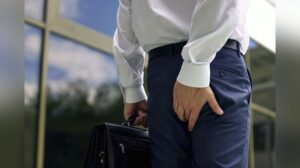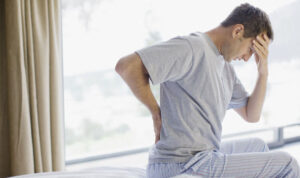Can Hemorrhoids Or Piles Go Away On Their Own?
Hemorrhoids are so irritating and frustrating, and that’s why one of our regular patients asked us yesterday Can hemorrhoids or piles go away on their own?
So, we have decided to address this issue once all. Do you also want to know Can hemorrhoids go away? Then this article is specially designed for you.
Can Hemorrhoids Or Piles Go Away On Their Own?
Hemorrhoids are an annoying, frequently painful ailment when the veins surrounding the anus or lower section of the rectum become bloated and irritated due to excessive pressure.
External hemorrhoids form under the skin surrounding the anus, while internal hemorrhoids develop in the tissue lining.
Hemorrhoids afflict around one in every twenty Americans, with almost half of those over 50 suffering from them. One cause is age; as we age, the supporting tissues in the rectum and anus weaken and become more prone to strain.

Pregnancy may also damage these tissues, so pregnant women often get hemorrhoids.
Other possible reasons include persistent constipation or diarrhea, straining during bowel motions, and spending lengthy amounts of time on the toilet. Lifting heavy goods regularly may also raise the incidence of hemorrhoids.
What are the symptoms of hemorrhoids?
The symptoms of hemorrhoids differ depending on whether the irritated veins are exterior or inside.
Itching and soreness from external hemorrhoids are common, particularly while sitting. You may also notice one or more painful lumps around the anal region. Scratching, rubbing, or extensive cleaning of the affected area might aggravate the symptoms.
When you have internal hemorrhoids, you may observe bright red blood when urinating. Internal hemorrhoids are typically not uncomfortable until they prolapse through the anal orifice, known as prolapsing.
While hemorrhoids are not harmful, they may cause difficulties. External hemorrhoids may get infected or form blood clots. Anemia, or a decreased red blood cell count, may result from an internal hemorrhoid hemorrhage.
How are hemorrhoids treated at home?
Hemorrhoids, significantly prolapsed hemorrhoids, usually go away on their own within a few days.
Eat more high-fiber meals, such as whole grains and green, leafy vegetables, and drink lots of fluids to help prevent inflammation (minimize coffee and alcoholic beverages, which can further irritate the area).

Avoid straining during bowel movements since this might aggravate hemorrhoids. A fiber supplement or a light stool softener may be beneficial.
If you’re in discomfort, take a warm or sitz bath, a shallow plastic tub that enables you to sit in just a few inches of water.
Sitz baths are available over the counter; adding Epsom salt to the tub may relieve discomfort. After a bath, be sure to dry the region properly.
Mild symptoms like itching, soreness, and swelling may be relieved with over-the-counter hemorrhoid creams or suppositories. Pay close attention to the instructions.
